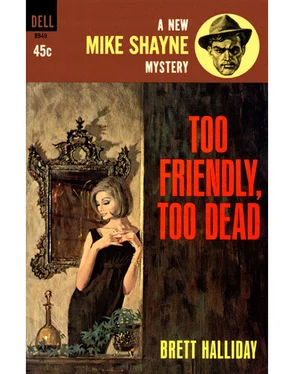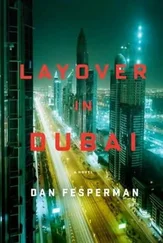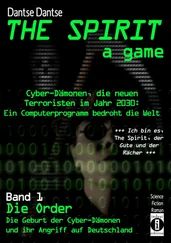Dan Fesperman - The Double Game
Здесь есть возможность читать онлайн «Dan Fesperman - The Double Game» весь текст электронной книги совершенно бесплатно (целиком полную версию без сокращений). В некоторых случаях можно слушать аудио, скачать через торрент в формате fb2 и присутствует краткое содержание. Жанр: Шпионский детектив, на английском языке. Описание произведения, (предисловие) а так же отзывы посетителей доступны на портале библиотеки ЛибКат.
- Название:The Double Game
- Автор:
- Жанр:
- Год:неизвестен
- ISBN:нет данных
- Рейтинг книги:3 / 5. Голосов: 1
-
Избранное:Добавить в избранное
- Отзывы:
-
Ваша оценка:
- 60
- 1
- 2
- 3
- 4
- 5
The Double Game: краткое содержание, описание и аннотация
Предлагаем к чтению аннотацию, описание, краткое содержание или предисловие (зависит от того, что написал сам автор книги «The Double Game»). Если вы не нашли необходимую информацию о книге — напишите в комментариях, мы постараемся отыскать её.
The Double Game — читать онлайн бесплатно полную книгу (весь текст) целиком
Ниже представлен текст книги, разбитый по страницам. Система сохранения места последней прочитанной страницы, позволяет с удобством читать онлайн бесплатно книгу «The Double Game», без необходимости каждый раз заново искать на чём Вы остановились. Поставьте закладку, и сможете в любой момент перейти на страницу, на которой закончили чтение.
Интервал:
Закладка:
Folly put down his newspaper and stared out the smudged window of the grumbling bus. The crossword lay unfinished in his lap, yet another set of enigmas beyond his capabilities. He saw that it was still raining, but the bus was at last approaching the outskirts of Prague, the very place where his formula had gone so utterly wrong.
Those lines of Lemaster’s click-clacked through my head to the rhythm of the train as we rolled across Bohemia. The haunting words now seemed as relevant as if my controller had circled them in black ink beneath another message in his now familiar handwriting.
Litzi, my friendliest of friendlies, had nodded off an hour ago as we glided past huddled villages and autumn pastures. As I watched her sleep, the train lurched and her eyes fluttered open. Her expression was blank, open to almost any interpretation, but I had already given up on the idea of operating under Folly’s rules. Bedlam, indeed. Even with what I’d learned about her past, trust was the only option if we were to continue traveling together, so I squeezed her hand and watched her smile.
“Will it be as beautiful as it was before?” she asked.
“The better question is if we’ll have time to notice.”
Although it wasn’t as if our Prague agenda was crowded. So far we had only two contacts-an aging bookseller and a boyhood friend. I was excited about seeing Karel Vitova. We’d tracked him down on Facebook, messaging him from Litzi’s smartphone just before we crossed the border into the Czech Republic. He answered almost immediately, with a happy-face emoticon and a string of exclamation points, plus an address for an apartment just around the corner from where he’d grown up.
I’d met Karel around the time my dad began weaning me from the crowd of embassy kids at the American school. We’d done our part for assimilation by moving into an apartment clear across the river from where the other diplomats lived. Prague was the city where, at age twelve, I first began to run, inspired by the local propaganda for national hero Emil Zatopek, who had won three gold medals at the ‘52 Olympics, beating all comers in a grueling combination of the 5K, the 10K, and the marathon. An entire fitness culture sprang up around his legend, and I met Karel at a “Zatopek Movement” cross-country race for boys, where we finished one-two in a hilly romp through Petrin Park.
Karel’s English was far better than my Czech, and he taught me the ways of the city. In return, I instructed him in American slang and pop music, which I might have had trouble mastering myself if not for my classmates at the American school, who’d spent far more time in the States.
It never occurred to me then that our friendship posed any risk for Karel’s family-not until we visited the machine shop where his dad worked to deliver a lunch pail. Just inside the door, next to a counter where the manager sat, there was a clock and a wooden box, where the workers punched their time cards. Posted above it was a sign with underlined words and an exclamation mark.
“What’s it say?” I asked. Karel laughed.
“It’s about you.” He translated: “Timely arrival to work strikes a decisive blow against the American aggressors!”
I didn’t think it was funny.
“Well, this aggressor’s hungry. Let’s get a sausage.”
The manager, hearing our English, scowled and muttered a curse. We burst out laughing and ran into the street. Probably not the sort of thing that showed up well in his father’s personnel file.
Litzi and I arrived at dusk with an hour to kill before meeting Karel for dinner, so we checked in to our hotel and walked through the Old Town. I kept an eye out for both Lothar and the Hammerhead, but as usual, Prague was mobbed.
The city’s refurbished beauty bowled me over even as it dismayed me. When I was a boy the buildings were sooty and tarnished, grandeur in decline. Now every surface looked scrubbed, every brick repointed. But city boosters had overlaid it with neon, corporate logos, and all these tourists, so many of them that the locals looked like infiltrators, as beleaguered as when the Soviets were in charge. To make matters worse, there was a soccer match that night between the Czech Republic and Scotland, so the streets were filled with the blue plaid soldiers of the Tartan Army, Scotland’s die-hard, drink-harder legion of fans.
We tried to take refuge in a pivnice, or beer pub, but all of them were thronged with Scots. Then Litzi spotted a promising oasis, a trim bar with red walls and enough bookshelves to furnish a small library.
“How wonderful,” she said. “And it’s called Bar and Books.”
We settled happily onto a leather bench, but a single overpriced drink was all it took for us to see that it was more of a cigar parlor for the trendy than a haven for literary types.
“This is the future for people like us,” she said. “Books as decor, something to put on the wall where you sip your whisky.”
A man over her shoulder caught my eye. He stood by the door, attempting to project a casual air. Was it my imagination, or was he the same fellow I’d spotted reading a Russian newspaper outside the train station?
“Don’t turn around,” I said, “but tell me if you recognize that man by the door.” I looked away to keep from making him suspicious. Litzi leaned back against the bench and idly scanned the room.
“Which one?” she whispered.
I turned. He was gone. An operative for the Hammerhead, or a product of my overactive imagination?
“Never mind. Let’s go. We’re due at Karel’s in another fifteen minutes anyway.”
The Old Town Square was pandemonium, an invasion not of tanks but of kilted drunks, peeing against the walls of sixteenth-century chapels and kicking soccer balls high in the air to land on the heads of the hordes below, like cannonballs from siege guns.
“Poor Prague,” Litzi said.
We threaded our way toward Karel’s.
“How many years has it been?” Litzi asked as I pressed the button for his apartment.
“Forty. We moved the year after the Russians rolled in. Haven’t seen him since.”
The buzzer sounded. No sooner had we pushed through the entrance than a door rattled open two stories above. A shaggy head loomed above the railing, and a big voice boomed down the stairwell.
“My friend Bill! You are most welcome!”
I laughed appreciatively. Litzi and I hustled up the steps to find him grinning hugely with his arms spread wide. Karel had grown into a woolly bear of a man. His brown-gray hair was clean but uncombed, in contrast to the Trotskyite beard that he’d trimmed to a point. He wore a folksy sweater of thick wool and a threadbare corduroy jacket that draped him like a horse blanket. His eyes were the same sparkling blue they’d been at age fourteen, with a gleam that said he was still up for anything.
I introduced Litzi and he ushered us inside. Books and magazines were everywhere. Dust coated the screen of a small rabbit-ear television that barely postdated our friendship. Abstract paintings covered every wall.
“First things first,” he said. He poured three amber shots of Becherovka, the local herbal liqueur, and passed them around.
“To Bill,” he said, raising his glass, “who taught me to sing like John Lennon, party like Keith Richards, and sneak around like James Bond.”
Litzi, who had never seen much of the Keith Richards side, seemed greatly amused. I grimaced at the medicinal bite of the Becherovka, but it released a flood of memory-two teen boys plotting their stratagems in alleyways and on riverbanks, with one eye out for parents and another for any available girl.
“To Karel,” I said, “who taught me to run like the great Zatopek. For a lap or two, anyway. And who helped engineer my first real kiss.”
Читать дальшеИнтервал:
Закладка:
Похожие книги на «The Double Game»
Представляем Вашему вниманию похожие книги на «The Double Game» списком для выбора. Мы отобрали схожую по названию и смыслу литературу в надежде предоставить читателям больше вариантов отыскать новые, интересные, ещё непрочитанные произведения.
Обсуждение, отзывы о книге «The Double Game» и просто собственные мнения читателей. Оставьте ваши комментарии, напишите, что Вы думаете о произведении, его смысле или главных героях. Укажите что конкретно понравилось, а что нет, и почему Вы так считаете.












